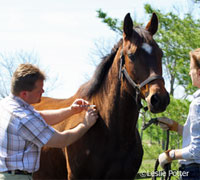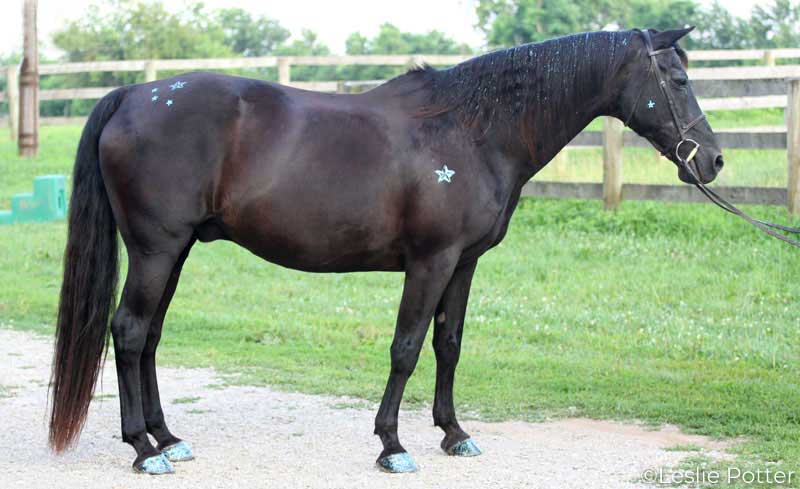 Earlier this week, Pennsylvania Agriculture Secretary George Greig today urged horse owners to consult their veterinarians about options for West Nile Virus prevention before mosquito season begins.
Earlier this week, Pennsylvania Agriculture Secretary George Greig today urged horse owners to consult their veterinarians about options for West Nile Virus prevention before mosquito season begins.
“Animal health is a top industry priority, and I encourage horse owners to speak to their veterinarians about protecting their animals against encephalitic diseases like West Nile Virus,” said Greig.
Equine encephalitic diseases are transmitted by mosquitoes and cause inflammation of the brain. Mosquitoes become more active with warm weather in early spring.
Vaccines are available to help prevent West Nile Virus and other equine encephalitic diseases such as Eastern Equine Encephalomyelitis. Vaccines are usually administered in February or March prior to mosquito season. Horse owners should talk with their veterinarians to determine the best time to start the vaccination process.
Horses vaccinated against Eastern, Western and Venezuelan equine encephalitis are not protected against West Nile Virus.
Greig cautioned that vaccination of horses is not a guarantee of protection against infection. The best way to prevent infection of West Nile Virus is to reduce the risk of exposure to mosquitoes by eliminating mosquito breeding sites. Important steps to be taken include:
- Dispose of tin cans, plastic containers, buckets, ceramic pots or other
unwanted water-holding containers on the property. - Pay special attention to discarded tires, which are mosquito breeding
sites. - Drill holes in the bottom of recycling containers left outdoors.
Containers with drainage holes located only on the sides collect enough
water to act as mosquito breeding sites. - Clean clogged roof gutters every year. Millions of mosquitoes can breed
in roof gutters each season. - Turn over plastic wading pools and wheelbarrows when not in use.
- Empty and refill outdoor water troughs, buckets and birdbaths every few
days so water does not stagnate. - Aerate ornamental pools or stock them with fish. Water gardens can
become major mosquito producers if they are allowed to stagnate. - Clean and chlorinate swimming pools when not in use. Mosquitoes may
breed in the water that collects on pool covers. - Use landscaping to eliminate standing water that collects on your
property, especially near manure storage areas. Mosquitoes may breed in
any puddle that lasts for more than four days.
Additional steps can be taken by horse owners to protect their horses:
- Reduce the number of birds in and around the stable area. Eliminate
roosting areas in the rafters of the stable. Certain species of wild
birds are the main reservoir for the virus. - Check the property for dead birds, especially crows. Any suspicious
birds should be reported online to www.westnile.state.pa.us or by
calling the Department of Environmental Protection at 717-346-8238. Use
gloves to handle dead birds and place the birds in plastic bags. If not
submitting the bird for testing, the bagged bird can be placed in the
trash. Wash hands thoroughly with soap and water after discarding the
dead bird. - Topical preparations containing mosquito repellents are available for
horses. Read the product label before using.
For more information contact the Pennsylvania Department of Agriculture’s Bureau of Animal Health at 717-783-6897 or visit www.westnile.state.pa.us.





hate mosquitoes very good article
I’ll be giving this to my horse soon. The vaccine NOT the disease!
We have alot of guinea hens who loves mosquitoes. Also geese which eat the lava in the water. We follow most of the practices mentioned.
Use Greenbug for People on riders and Greenbug for Outdoors on the horses, in the stalls and on the grounds. Greenbug is safe, completely green and it works! They use it at my barn and now I use it at my house and on my kids, dogs, etc. http://www.greenbugallnatural.com
Thanks for the great tips.